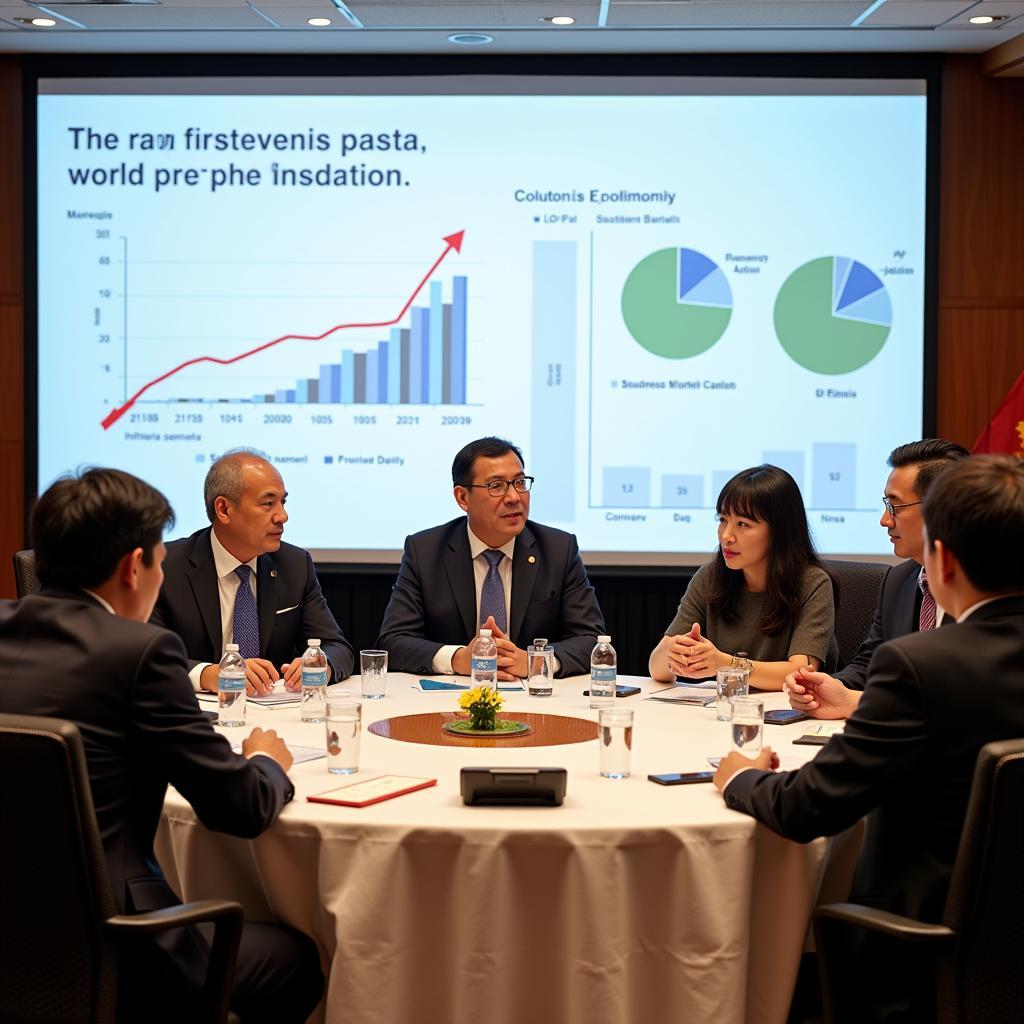The Association of Southeast Asian Nations (ASEAN) is a political and economic union of 10 member states in Southeast Asia. While the term “allies” often implies formal military alliances like NATO, the relationship between ASEAN countries is more nuanced. So, Are Asean Countries Allies? This article delves into the complexities of their partnerships, exploring the framework of their cooperation and how it translates into a unique form of alliance in the geopolitical landscape.
The ASEAN Way: Cooperation Over Conflict
ASEAN operates on the principle of “The ASEAN Way,” prioritizing consensus-based decision-making, non-interference in internal affairs, and peaceful resolutions to disputes. This approach has fostered a spirit of cooperation and regional stability, even amidst diverse political systems and historical complexities.
Instead of formal military alliances, ASEAN has established several mechanisms to address security challenges:
- ASEAN Regional Forum (ARF): A platform for dialogue on security issues, involving ASEAN members and 27 dialogue partners, including major powers.
- ASEAN Defence Ministers’ Meeting (ADMM) and ADMM-Plus: Forums for defense diplomacy and practical cooperation on transnational security threats.
Economic Cooperation: A Cornerstone of ASEAN’s Strength
Economic integration is a key pillar of ASEAN. The ASEAN Economic Community (AEC) aims to create a single market and production base, fostering trade, investment, and economic growth among member states. This shared economic interest naturally fosters a sense of interdependence and shared destiny, further strengthening the bonds within ASEAN.
Shared Challenges, United Front?
ASEAN nations face common challenges, including:
- Territorial disputes in the South China Sea: While ASEAN itself maintains neutrality, several member states have overlapping claims with China, fostering a need for a united front to safeguard maritime security and regional stability.
- Transnational threats: Terrorism, natural disasters, and pandemics like COVID-19 require collaborative responses and mutual assistance, highlighting the importance of regional solidarity.
Limits to the Alliance: Navigating Differences
Despite shared goals, ASEAN’s consensus-based approach and principle of non-interference can sometimes hinder decisive action:
- Differing national interests: Diverse political systems and priorities can lead to varying responses to regional and global issues, sometimes creating roadblocks to a unified stance.
- Lack of a collective defense pact: Unlike NATO, ASEAN does not have a collective defense agreement, meaning member states are not obligated to intervene militarily if another member is attacked.
ASEAN’s Evolving Alliances: A Future Perspective
While not bound by a traditional alliance framework, ASEAN countries share a common interest in regional stability, economic prosperity, and peaceful conflict resolution. The evolving geopolitical landscape, particularly in the Indo-Pacific, necessitates closer collaboration within ASEAN and with external partners.
The future will likely see ASEAN navigating a complex web of partnerships, balancing its core principles with the need for a more assertive and unified voice on the global stage. Whether this translates into formalizing alliances or strengthening existing mechanisms remains to be seen. However, one thing is certain: the spirit of cooperation and shared destiny will continue to guide ASEAN’s journey towards a more integrated and resilient Southeast Asia.
FAQs
1. Does ASEAN have a military?
No, ASEAN itself does not have a standing military force.
2. What is ASEAN’s stance on the South China Sea dispute?
ASEAN maintains neutrality in the South China Sea dispute, advocating for peaceful resolutions and dialogue based on international law.
3. How does ASEAN promote democracy?
While not explicitly a democracy-promoting organization, ASEAN fosters dialogue on human rights and good governance through various platforms and initiatives.
4. Can a country leave ASEAN?
Yes, a country can withdraw from ASEAN by notifying the Secretary-General of ASEAN.
5. How can I learn more about ASEAN?
For more information, visit the official website of the ASEAN Secretariat: https://asean.org/
Need further assistance? Contact us:
- Phone: 0369020373
- Email: [email protected]
- Address: Thon Ngoc Lien, Hiep Hoa, Bac Giang, Vietnam
Our customer service team is available 24/7 to assist you. For more insightful articles about ASEAN and related topics, explore our website: asean and the vietnamese occupation of cambodia.

